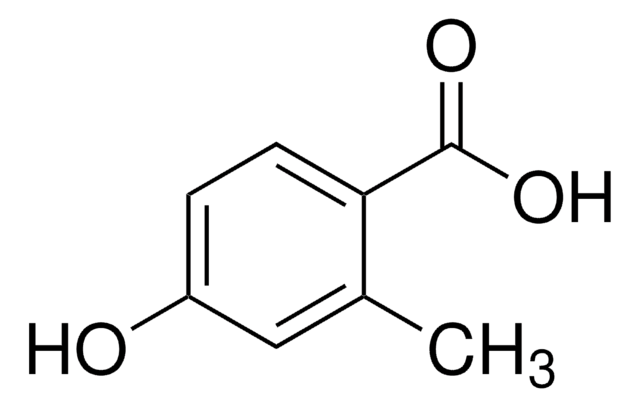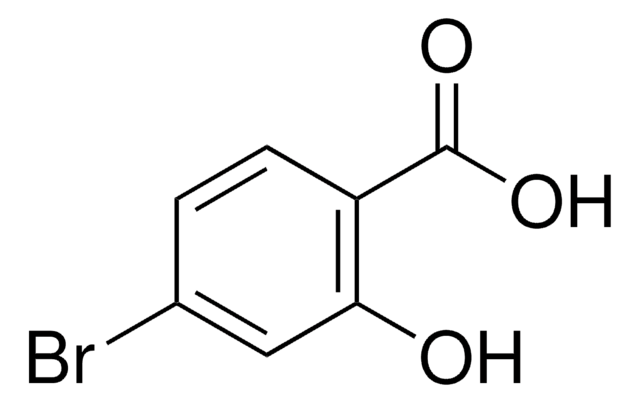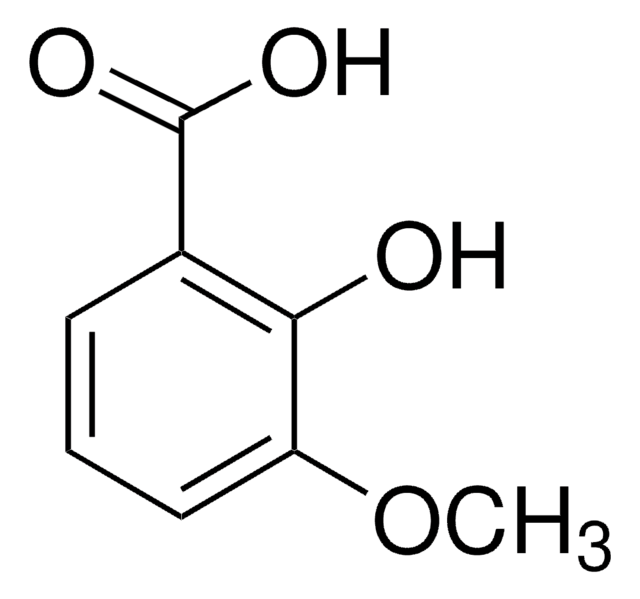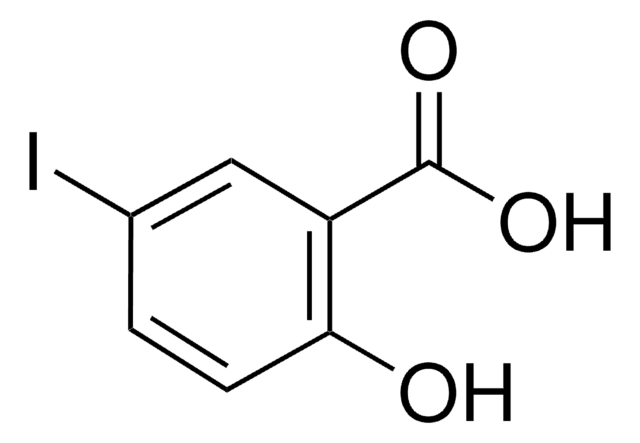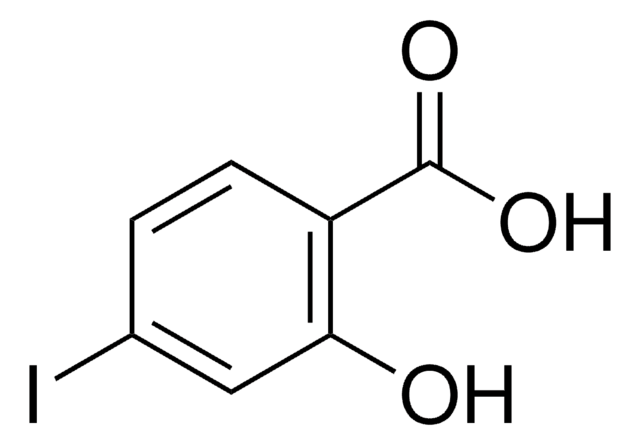173479
2-Hydroxy-4-methoxybenzoic acid
99%
Sinónimos:
4-Methoxysalicylic acid
Iniciar sesiónpara Ver la Fijación de precios por contrato y de la organización
About This Item
Fórmula lineal:
CH3OC6H3(OH)CO2H
Número de CAS:
Peso molecular:
168.15
EC Number:
MDL number:
UNSPSC Code:
12352100
PubChem Substance ID:
NACRES:
NA.22
Productos recomendados
Quality Level
assay
99%
mp
158-159 °C (lit.)
SMILES string
COc1ccc(C(O)=O)c(O)c1
InChI
1S/C8H8O4/c1-12-5-2-3-6(8(10)11)7(9)4-5/h2-4,9H,1H3,(H,10,11)
InChI key
MRIXVKKOHPQOFK-UHFFFAOYSA-N
Categorías relacionadas
Application
2-Hydroxy-4-methoxybenzoic acid (4-methoxysalicylic acid) was used in the synthesis of 1,3,4-oxadiazole derivatives.
signalword
Warning
hcodes
Hazard Classifications
Eye Irrit. 2 - Skin Irrit. 2 - STOT SE 3
target_organs
Respiratory system
Storage Class
11 - Combustible Solids
wgk_germany
WGK 3
flash_point_f
Not applicable
flash_point_c
Not applicable
ppe
dust mask type N95 (US), Eyeshields, Gloves
Elija entre una de las versiones más recientes:
¿Ya tiene este producto?
Encuentre la documentación para los productos que ha comprado recientemente en la Biblioteca de documentos.
Zhi-Ming Zhang et al.
Bioorganic & medicinal chemistry, 20(10), 3359-3367 (2012-04-24)
A series of 1,3,4-oxadiazole derivatives derived from 4-methoxysalicylic acid or 4-methylsalicylic acid (6a-6z) have been first synthesized for their potential immunosuppressive activity. Among them, compound 6z displayed the most potent biological activity against lymph node cells (inhibition=38.76% for lymph node
Fei Zheng et al.
Xenobiotica; the fate of foreign compounds in biological systems, 49(9), 1025-1032 (2018-10-24)
1. Anthocyanins (ACNs) are a subclass of polyphenolic pigments belonging to the flavonoids and constitute an important group of human diets. There is accumulated evidence that consumption of ACN-rich diets such as Vitis amurensis Rupr of "Beibinghong" exerts protective activities
Francesca Bonvicini et al.
The new microbiologica, 41(3), 187-194 (2018-06-07)
Herpes simplex virus types 1 (HSV-1) and 2 (HSV-2) cause several clinically relevant syndromes in both adults and neonates. Despite the availability of efficient anti-HSV agents, the search for new therapeutic approaches is highly encouraged due to the increasing drug
Lenka Applová et al.
Molecular nutrition & food research, 63(20), e1900261-e1900261 (2019-07-26)
Intake of flavonoids from the diet can be substantial, and epidemiological studies suggest that these compounds can decrease the incidence of cardiovascular diseases by involvement with increased platelet aggregation. Although parent flavonoids possess antiplatelet effects, the clinical importance is disputable
Violetta Mohos et al.
Biomolecules, 10(3) (2020-03-12)
Flavonoids are abundant polyphenols in nature. They are extensively biotransformed in enterocytes and hepatocytes, where conjugated (methyl, sulfate, and glucuronide) metabolites are formed. However, bacterial microflora in the human intestines also metabolize flavonoids, resulting in the production of smaller phenolic
Nuestro equipo de científicos tiene experiencia en todas las áreas de investigación: Ciencias de la vida, Ciencia de los materiales, Síntesis química, Cromatografía, Analítica y muchas otras.
Póngase en contacto con el Servicio técnico